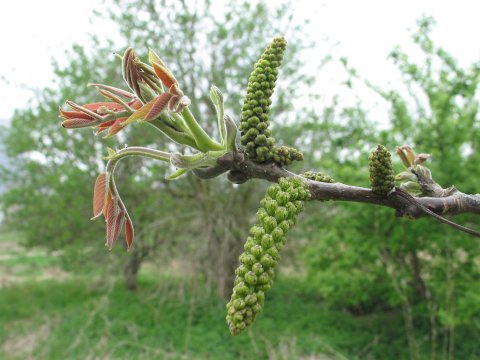Agroforestry (AF) is considered to be a sustainable land use practice as it combines agricultural production with multiple beneficial effects such as carbon sequestration, enhanced nutrient cycling and increased biodiversity. Quantification of these beneficial effects in temperate arable fields is still limited, however, and most studies focus on one sole parameter (i.e., impact on crop productivity, soil quality, biodiversity, etc.).
Combined effects are only rarely considered, resulting in a lack of integrated quantification. Here we assess the effect of rows of walnut trees (Juglans regia L.) on soil organic carbon (SOC), soil nutrient status, the presence of potentially beneficial ground-dwelling arthropods and on the yield and quality of neighboring arable crops.
Significantly higher SOC and soil nutrient concentrations were found near the trees, which is assumed to be primarily a result of tree leaf litter input. Abundance of macro-detritivorous arthropods was increased in and near the tree rows, whereas only limited effects of tree presence were found on the presence of the predatory arthropod taxa under study.
The yield of all crops under study was reduced as a result of tree presence, with the strongest reductions observed for grain maize and sugar beet near the trees (<10 m). In addition, alteration of crop quality was observed near tree rows with decreased dry matter concentration of grain samples and increased crude protein concentration of winter cereals.
Report by paul [dot] pardon [at] ilvo [dot] vlaanderen [dot] be (Paul Pardon)












